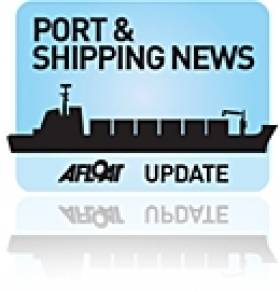Displaying items by tag: Potatoes
Volumes Increase at Drogheda Port
In order to facilitate the recovery of the economy, ports with increased capacity will play a vital strategic role in expanding export-driven trade. Plans by the Drogheda Port Company to the development of a proposed new port at Bremore in north Co. Dublin, remain a key objective of the company, with a planning application currently in preparation.
To Russia with ‘Potatoes’
Asides the cash crop, Drogheda Port has established shipping trades routes in the carriage of containers units, fertilizers, magnesite, LPG and newsprint. In addition the Co. Louth port operates the country's only weekly service to Norway, Sweden and Denmark.





























































